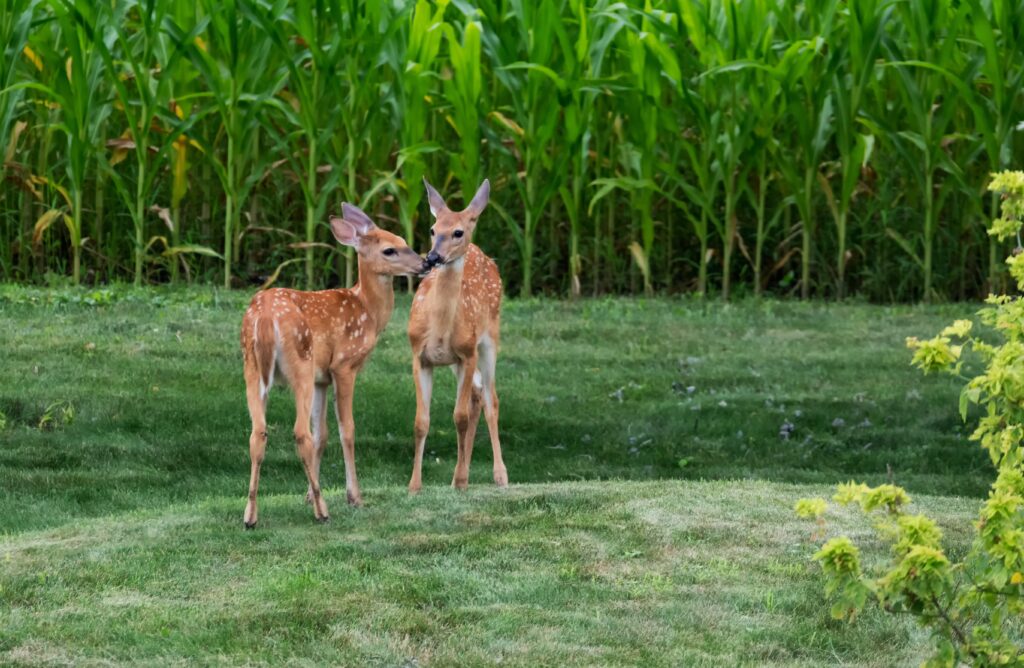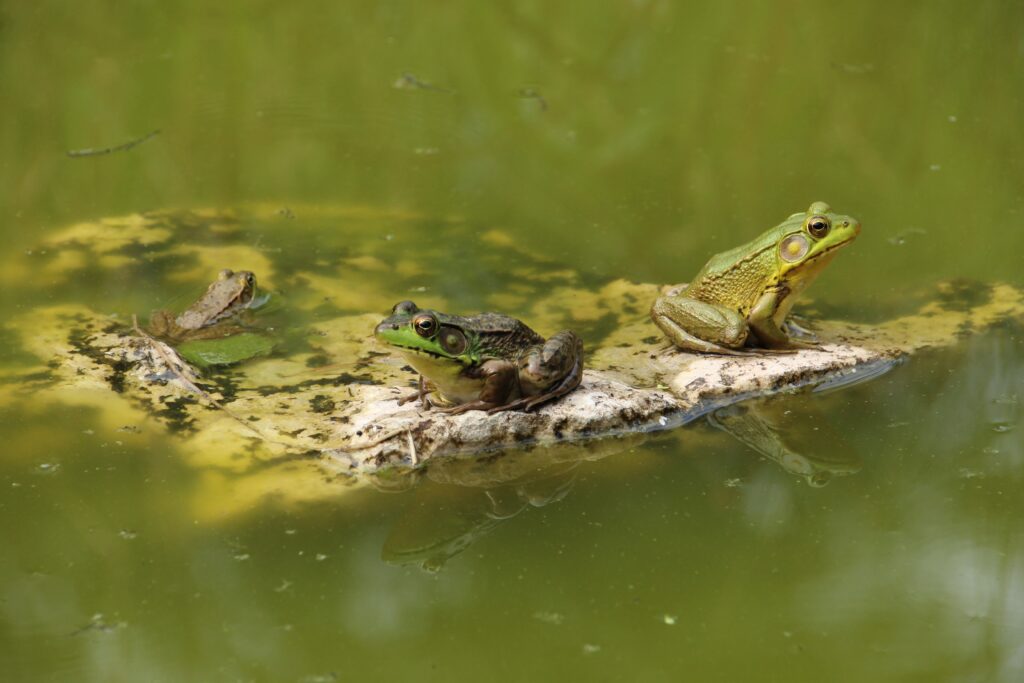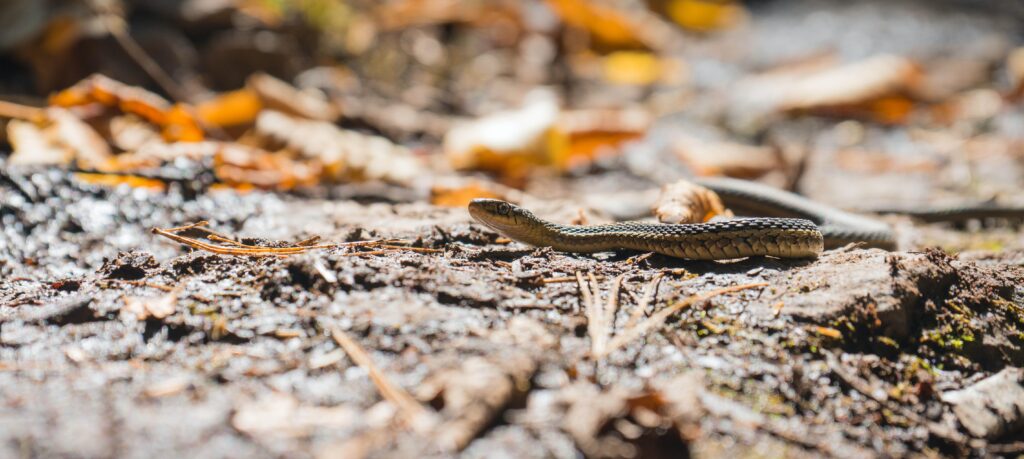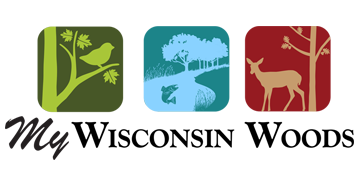
Discovering Wildlife and Forest Management: The Wisconsin Coverts Project Workshop
By Denise Thornton
For land owners looking to jumpstart their understanding and explore more options on how to manage their woodlands, the Wisconsin Coverts Project four-day workshop at Kemp Natural Resources Station (held this year from August 10–13) is a total immersion in wildlife and forest management ideas and expertise. Coverts offers a powerful combination of lectures (in a comfortable, modern classroom facility), field trips, and campfire chats that cover topics from songbird inventories to managing invasives, to healthy timber harvests, and making maple syrup.

“I am involved in a lot of extension conversations and program planning, and Coverts is unique because of its residential nature,” says program coordinator, Jamie Nack, Extension Senior Wildlife Outreach Specialist and Certified Wildlife Biologist with the University of Wisconsin – Madison Division of Extension, and the Dept. of Forest & Wildlife Ecology. “It has so much more impact than a class that meets for two hours every Monday for a number of weeks.”
Helping his mother manage the family farm in Eau Claire County brought Shawn Barneson and his wife Christine to the Coverts Project last year in their quest to take better care of their land. “The best part is networking with other landowners. Getting to know and work with the other people was a huge benefit of being there,” says Christine. “We have since followed up with some of the people we met there. One in our area helped guide us to some foresters to talk to. There was another attendee who helped us with ideas about our aggressive weeds.”

“I heard about it on the Larry Meiller Show on Wisconsin Public Radio, and Coverts sounded like it could answer the questions floating around in my mind. The flow was wonderful,” says Kristin Miller who has property in Bayfield County. “Having academic learning and time for social interactions and casual campfire conversations was so much better than trying to track down experts on my own.”
To see the agenda of what the workshop offers this year, check out their website. The first day includes a welcome session, introductions, and overview with presentations on Principles of Wildlife Management, Management Strategies for Ruffed Grouse, and Wildlife Damage Management.
There will be a day devoted to a new program on the 300-acre property of an area land owner, Martin and Sons Sugar Bush. “Experts will talk about different aspects of the Managed Forest Law Program and how it is applied throughout the property,” says Nack. “The tour will also examine the sugar bush operation — a huge vacuum reverse osmosis system that pumps tree sap into containers and boiling it down. Participants will bottle their own maple syrup to take home.”
“This property has a very interesting infrastructure,” says Curt Rollman, a Coverts instructor and wildlife biologist for the Wisconsin Department of Natural Resources. “We will be able to highlight certain timber types there and how they benefit wildlife.”
Tom Buechel of Lake Mills, who owns property in Florence County, found the Coverts Project to be an overall good learning experience. “Most land owners focus on their main interest like bird watching or hunting, but just learning about food plots doesn’t teach them to be better stewards of their land,” he noted. “I learned so much about basic land management and techniques. People tend to hodge-podge their set of practices together. The Coverts Project teaches you about better all-round ecology and habitat for more species, and the best and most challenging part of Coverts is learning to prioritize your starting point instead of going in a hundred different directions and becoming inundated.”
The Wisconsin Coverts Project workshop is offered free of charge. Lodging, meals, and materials are all paid for by workshop sponsors, who include: Wisconsin Sustainable Forestry Initiative (SFI®) Implementation Committee, The Ruffed Grouse Society/American Woodcock Society, University of Wisconsin Extension, UW–Madison Department of Forest and Wildlife Ecology, The Anne and Jason Spaeth Family, Braun Woodlands, and the Renewable Resources Extension Act (RREA). In exchange for the free workshop and materials, participants agree to become COVERTS COOPERATORS, sharing what they have learned with their communities.‘If you go through the program,” says Nack, “there is an expectation that you will develop a written wildlife management plan for your land, then reach out and share the information and resources provided by Coverts with other landowners. Peer-to-peer learning is important and helps us spread our dollars, time, and energy through train-the-trainers programming.”

For example, Tom serves on the Land Conservation Committee in Florence County and put the word out through the committee. Shawn and Christine hosted an extended family party to share with family members and neighbors in the area and have talked to at least five different landowners about their Coverts Project experience. “We planted a lot of seeds, and hopefully they will bloom,” said Shawn.
Nack is taking applications for this year’s Coverts Project workshop until June 15. “Then I go through them and balance outreach potential versus how many acres they own. You can apply through our website You don’t have to be a Wisconsin resident to apply.”
Another benefit for participants are the reunions held every five years. “Last time we had 85 land owners and 28 different presenters including representatives from many different state organizations. People were able to move around the room and explore all these cool wildlife programs,” says Nack.
“Before we went, we didn’t even know about My Wisconsin Woods,” says Christine. “We have linked into so many resources because of Coverts. If you already have a plan, this will help accelerate your plan, and your learning.”
Since 1994, 822 Coverts Cooperators (representing 689 properties) have attended Wisconsin’s 32 workshops. Cooperators own or are responsible for managing 244,330 acres in Wisconsin (and the Midwest). Coverts Cooperators have reached out to more than 17,000 other landowners accounting for an additional estimated 697,000 acres in Wisconsin and beyond. The total land base impacted through 28 years of the program is estimated to be over 1 million acres.
